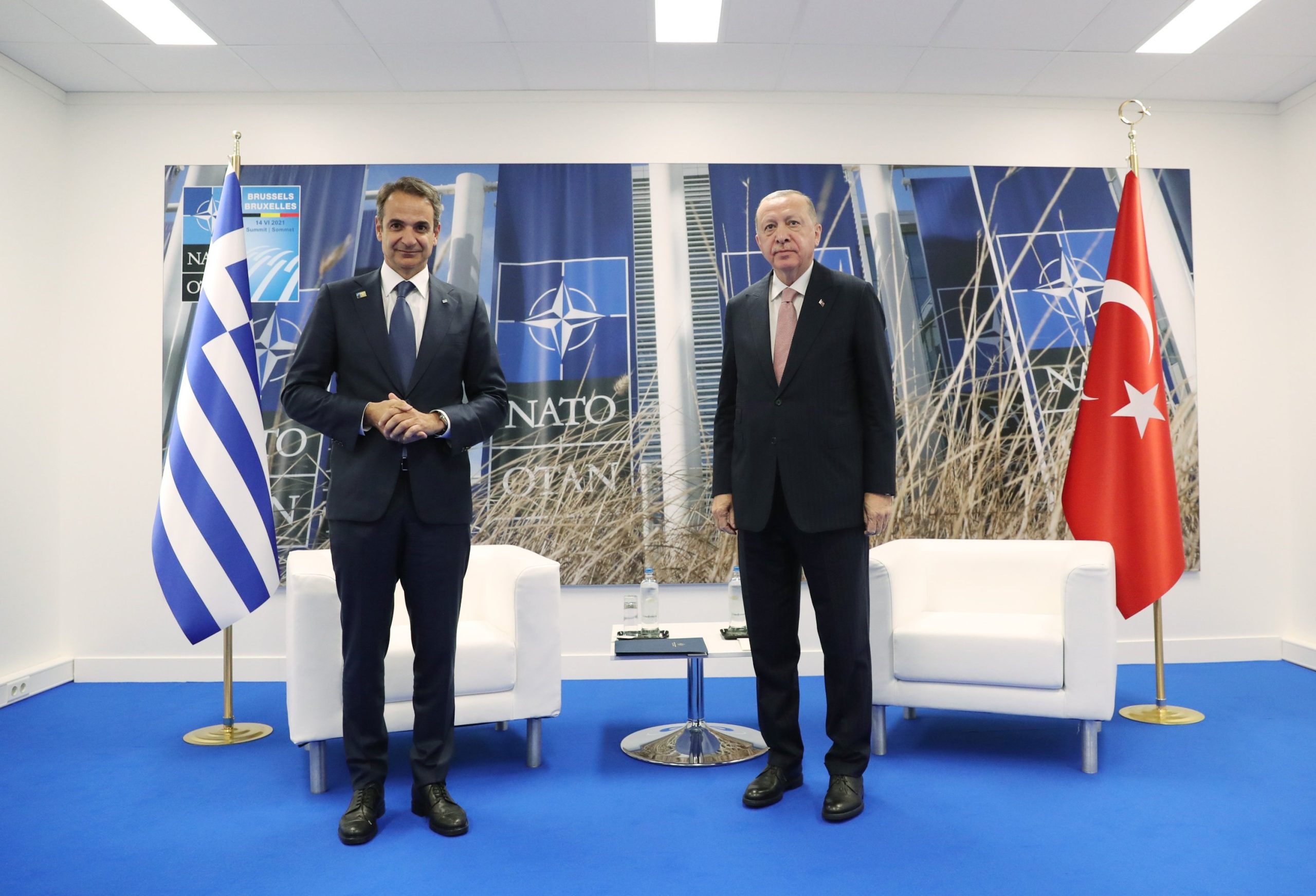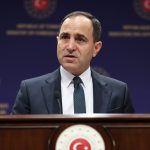“Is Turkey going to attack us? Will we also have to deal with an Aegean war, as if the economic and energy crises weren’t bad enough already?” Vassilis, who has two degrees and studied overseas, poses this query. The young man has experienced a very challenging reality in his country over the past ten years. Vassilis completed his education in Greece during a time of economic hardship, which left him jobless for a protracted period and dependent on his parents for financial support. He made a brief attempt to move abroad before returning home, where he worked as a courier and baker on the side. He presently earns a meager salary working in an Athens office and aspires to create a future with his boyfriend.
Like many of his countrymen who were affected by the severe economic crisis of the previous ten years, Vassilis now considers the fresh difficulties he must overcome. Vassilis and his compatriots were outraged by the most recent messages from Ankara regarding Greek-Turkish relations. Greece is now taking notice of the potential for armed confrontation in the Aegean before the end of 2022. This development occurred when the conservative New Democracy Party, which has been in power since mid-2019, was dealing with a very challenging situation.
In addition to being entangled in controversies, the Kyriakos Mitsotakis administration must also cope with new challenges just before the parliamentary elections, most notably the energy and economic issues and tense Greek-Turkish relations. Careful Greek analysts and politicians concur that the nationalist rhetoric in Greek-Turkish ties, as with Turkey, in Greece, when polls show Mitsotakis moving away from the aim of a one-party government, the escalation of the tension in the Aegean also helps the electoral plans of the government.”
“Ankara is resorting to nationalist rhetoric in Greek-Turkish relations”
In an effort to disorient public opinion, the pro-government press in Greece lends context to Ankara’s threats, while the Greek population is primarily focused on the challenges faced by the government. The Greek press adopts official discourse, stating that “the President of Turkey, who is confronting a tough economic and political situation, is prepared to intensify tensions in the Aegean.” Similar sentiments are expressed by the opposition media of the neighboring nation.
The pro-government Kathimerini newspaper, which carried Erdogan’s remarks under the distinctive title “Direct threats against Greece,” claims that the president of Turkey threatened Greece a few days ago. Considering the 100th anniversary of the Asia Minor Catastrophe, the newspaper states that “the Turkish president calls on Greeks to remember Smyrna, warning them that the price will be heavy.”
In Greek-Turkish ties, another Greek newspaper, the Ethnos, embraces the government’s conservative rhetoric. “Recep Tayyip Erdogan’s provocations are intensifying with an eye on the polls”, according to the newspaper which claims that “in an unprecedented move, Turkish President Erdogan has intensified his rhetoric against Greece, demonstrating his desire to keep the tense atmosphere until the elections.” “The neighboring country’s elections will take place in 2023, and the Turkish president is ready to engage in his most important political battle. He enters this election campaign “wounded” as the unstable Turkish economy has a significant political impact (in the elections). Mr. Erdogan is winking at his conservative audience with provocative references to the Asia Minor disaster and the Turkish invasion of Cyprus in 1974 against this foreboding political backdrop for him,” adds Ethnos.
According to the Proto Thema newspaper which is close to the nationalist right, Ankara “is pulling the rope with Athens which responds that it will not follow Turkey in its daily outrageous and beyond all limits downward slide of statements and threats.” The newspaper conveyed to its readers the idea that “the Turkish side continued to provoke as three Turkish UAVs carried out 57 violations and one violation of the Greek FIR, while late Saturday night, a UAV overflew over Kandelioussa, west of Nisyros. And these occurred just one day after Hulusi Akar, flew with an F-16 over the northern Aegean Sea, provoking the neighboring nation once more.”
Notably, the opposition press has embraced the stance of the pro-government press in Greece that “Ankara is resorting to nationalist rhetoric in Greek-Turkish ties in view of the presidential elections.” The opposition newspaper Avgi reported the latest messages from Ankara on Greek-Turkish relations, noting that “for Turkish President Recep Tayyip Erdogan, things are difficult ahead of the 2023 elections. He works hard to boost his image, especially at home. He is making increasingly explicit threats since he knows well that promoting (old) national victories and patriotic rhetoric to the Turkish people is insufficient.”
The percentages fall, nationalism peaks
Turkish and Greek governments exchange accusations and stern messages when polls in Greece show that Mitsotakis’s party is moving away from the goal of a one-party government. According to a new survey by Metron Analysis, the New Democracy is in the lead with 27.6% of the vote to Syriza’s 20.2%, while Pasok-Movement of Change is in third place with 12.7% of the vote, an increase of 0.4 points from the last assessment (12.3% in June). The Communist Party of Greece follows with 6.1% (up from 5.6%), while Mera25 increases its percentage from 4% to 3.3% and Hellenic Solution decreases from 3.4% to 3.7%. However, 12.3% of voters remain undecided. According to the survey, with 27%, the economy and inflation were the most acute problems of concern to citizens, followed by the energy crisis (13 %), unemployment (7 %), foreign policy, and war (7 %).
In the wake of the new poll, the Prime Minister of Greece made a new, remarkable statement. To defend how his government is handling the new challenges, Mitsotakis publicly asserted that the presidents of Russia and Turkey wanted a change in government in Athens. The prime minister implied that Turkey intervened in Greece’s domestic issues. This statement provoked the reaction of the Greek Right. The former New Democracy member George Kyrtsos, reacting to Mitsotakis’s statement, stated that “Mitsotakis was unscrupulous. He attributes these reactions to the wiretapping scandal, which he set up to Putin and Erdogan. After the internal enemy, he discovered an external finger to disorient the public opinion.”
Dimitris Haritos, a Syriza MP from Rodopi, concurs with Kyrtsos’ viewpoint. From his point of view, following the example of the Turkish President, the Greek Prime Minister uses nationalist rhetoric to distract Greek public opinion from the actual problems that Greece is facing. According to Haritos, the Greek Prime Minister employs nationalist rhetoric to divert attention from the actual issues facing Greece by imitating the Turkish president. “The intentions are obvious. During the cabinet meeting, Mr. Mitsotakis referred to external destabilizing elements such as Putin and Erdogan to divert the public’s attention from the surveillance controversy” states Haritos who adds: “It appears that Mr. Erdogan needs a Mr. Mitsotakis to divert attention from the terrible reality he is experiencing. Mr. Mitsotakis equally needs Mr. Erdogan to refocus public opinion.”
By:Dr Nikolaos
Stelgias was born in Istanbul. He is an independent researcher, writer, historian and journalist. His doctorate is in the field of the modern Turkish political system (Panteion University, 2011). His latest book “The Ailing Turkish Democracy” was published by the Cambridge Scholars Publication in 2020. Dr. Stelgias was a correspondent of the newspaper “Kathimerini (Cyprus edition)” for Turkey and the Turkish Cypriot community from 2009 to 2021. Currently, Dr. Stelgias works at the Cyprus News Agency. Dr. Stelgias publishes in Turkish news articles and analyses on Cyprus and Greece.
Source: +Gerçek News



